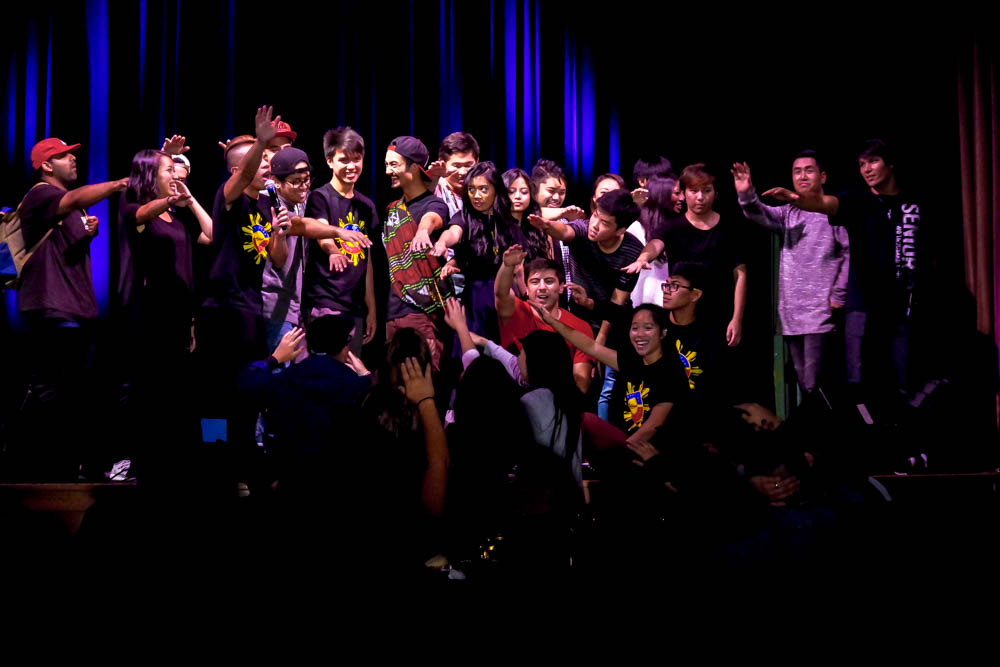Flooney Theatre turns 30
The Old Church
1422 S.W. 11th Ave.
Feb. 7-9
8 p.m.
Sunday, 5 p.m.
$10 at the door
For almost three decades, The Flooney’s Theatre Company, which has dedicated itself to African-American culture, has been performing “The Langston Hughes Project.”
It is a biographical sketch of legendary writer Langston Hughes, performed by company founder Ben “Flooney” Hardy. The members of the cast will recite Hughes’ poetry, closing the evening with “Who is Simple?” also read by Flooney.
Hughes received numerous fellowships, awards and honorary degrees, including the Anisfield-Wolf Award in 1953 for a book on improving race relations. Hughes also taught creative writing at two universities; had his plays produced on four continents; and made recordings of music commentary, history and his own poetry. He was elected to the American Academy of Arts and Sciences and to the National Institute of Arts and Letters.
Selections from “Best of Simple” (“Simple Prays a Prayer” and “Feet Live Their Own Life”) will be showcased. Jesse B. Simple, an “everyday type of guy” whose observations on the struggles of modern life, injustice and the human condition, showcases Hughes’ wry, piercing humor.
As a newspaper columnist, Hughes created Simple, probably his most enduring character. Simple brought his style to perfection and solidified his reputation as the “most eloquent spokesman” for African-Americans. The “Simple” sketches, collected in five volumes, are presented as conversations between an uneducated, city dweller, Jesse B. Semple (Simple), and an educated but less sensitive acquaintance.
Simple is an everyday man, despite his language, habits and personality, resulting from his particular experiences as an African American man. Hughes’ eloquence shines brilliantly.
Performed by Nathaniel Haynes and Henry Melson, “The Best of Simple” maintains its crisp and engaging exchanges as if it was its very first performance back in 1972. With such talent as Lonnie Nettles-White, whose inspiring presence has graced The Flooney’s Theatre Company for almost 10 years now, the story of Hughes’ is culturally appealing.
Hughes was born in Joplin, Missouri, on Feb. 1, 1902. His parents soon separated, and he was raised mostly by his mother. He attended public schools in Kansas and Illinois, graduating from high school in Cleveland, Ohio, in 1920. In his senior year, he was chosen class poet and yearbook editor.
During this time, Hughes’ father tried to discourage him from writing. But Hughes’ poetry and prose were beginning to appear in the “Brownie’s Book,” a publication for children edited by W.E.B. Du Bois, and he was starting work on more ambitious material dealing with adult realities.
The poem “The Negro Speaks of Rivers,” which marked this development, appeared in the “Crisis” in 1921.
Later, in 1924 Hughes went to live in Washington, D.C. He hoped to earn enough money to go to college, but work as a hotel busboy paid very little. Life in the nation’s capital, where class distinctions among African Americans were very clear, made him unhappy.
“The Weary Blues” won first prize in 1925 in a literary competition sponsored by “Opportunity,” a magazine published by the National Urban League. That summer, one of his essays and another poem won prizes in the “Crisis” literary contest. Meanwhile, Hughes had come to the attention of Carl Van Vechten, a white novelist and critic, who arranged publication of Hughes’ first volume of verse, “The Weary Blues” (1926).
This book explored racial themes – pride in blackness and in his African heritage, the tragic mulatto, the everyday lives of African-Americans – as well as other themes such as democracy and patriotism. Hughes transformed the bitterness that such themes generated in many of his African American contemporaries into sharp irony, gentle satire and humor. His casual-seeming, folk-like style was strengthened in his second book, “Fine Clothes to the Jew” (1927).
A cultural icon of his time, Hughes’ sensitivity and insight inspire us all to be better human beings. As Hughes himself once wrote, “We build our temples for tomorrow, as strong as we know how – and stand upon the mountain, free within ourselves.”




